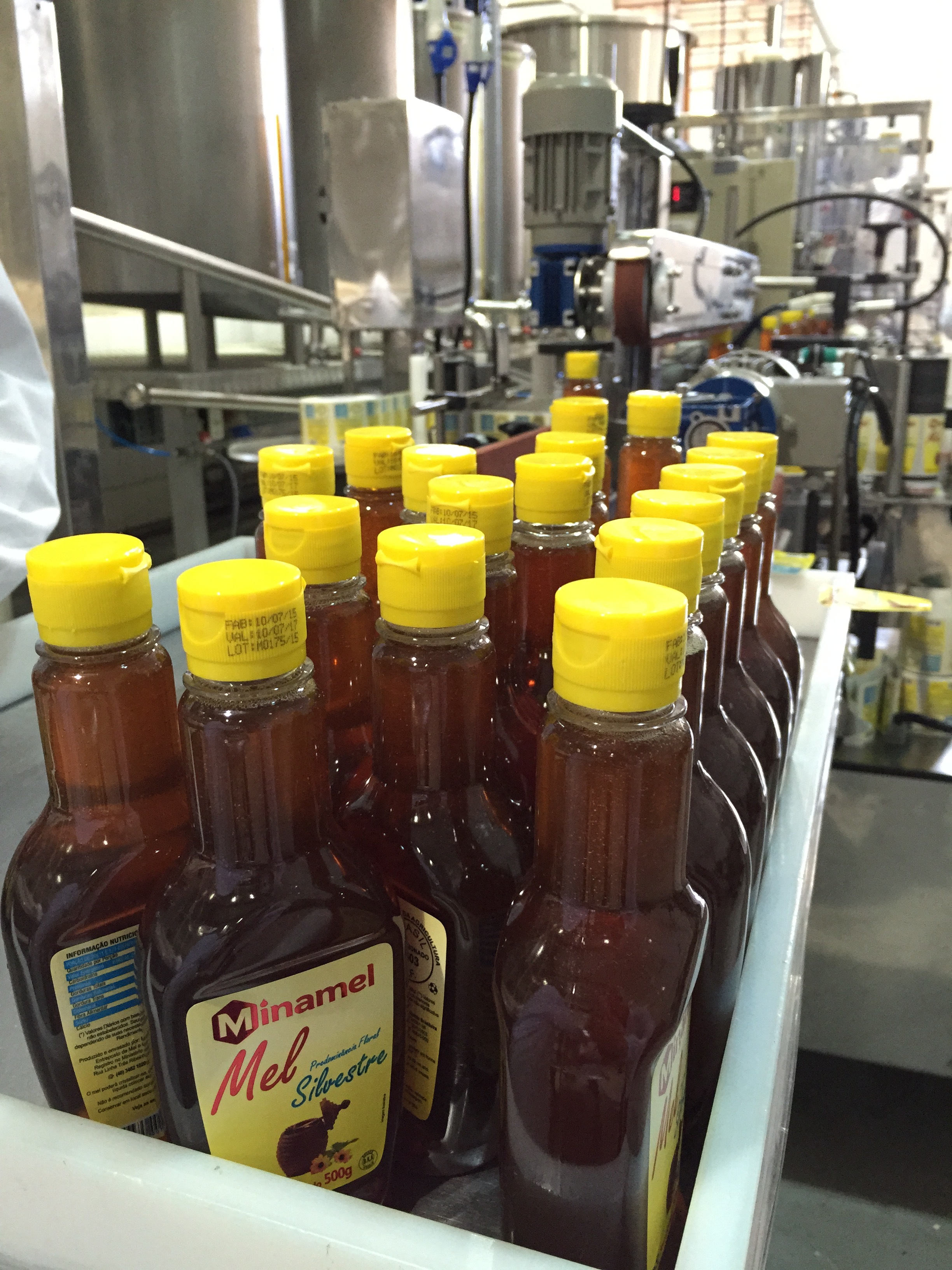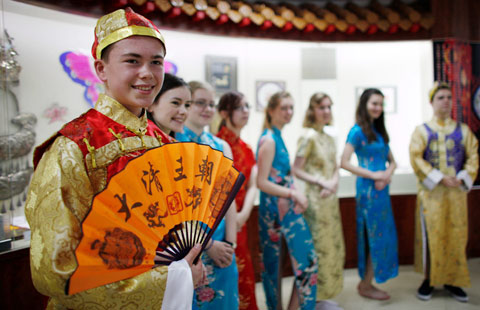Brazilian honey producer eyes Chinese market
Updated: 2015-07-20 05:29
By CHEN WEIHUA and LIU LONG in Rio de Janeiro(China Daily Latin America)
|
|||||||||
 |
|
The assembly line at Prodapys, Brazil's leading exporter of organic honey. LIU LONG / CHINA DAILY |
"The Chinese market has a huge demand for organic honey with high quality. Although we have not exported to China directly, I hope we can provide Chinese consumers with our best products in the future," Prodapys' director Celio Marcos da Silva told China Daily in a recent interview.
Prodapys, founded in 1977, exports most of its products to the United States. But the company sees China as a huge emerging market for its next development stage.
"Brazilian honey is very good, and cheaper than that from New Zealand. Every time when I went back to China, I bought some for my parents and friends," said Wang Ying, who works in Huawei's Brazil branch.
Brazil exported 25,000 tons of honey in 2014 worth $98.5 million, 82 percent more than in 2013. Still, Brazil is currently only the world's eighth-largest honey exporter, and is looking to exploit its growth potential, according to the Brazilian Association of Honey Exporters (ABEMEL).
The United States accounts for 75 percent of Brazilian exports, followed by Germany with 7 percent, and Canada and Brazil with 5 percent apiece.
One of the most desired Brazilian honey products is the organic one, which gives Brazil a competitive advantage because demand for organic and natural products is growing internationally. And organic honey can command 30 percent more per kilo.
There are strict regulations regarding organic products, said Nezio Medeiros, president of the Santa Catarina Federation of Honey Producers.
"It can't be near GM (genetically modified) crops, industrial activity or orchards sprayed with pesticide," Angenor Sartori, director of Miramel, an organic honey producer, said about the production of organic honey.
In addition, he said, "the machinery and extraction process for honey are also regulated. From the beekeeper to the honey consumer, there is a regulatory process to guarantee that it is truly organic."
Besides organic honey, the international market is also interested in Brazilian propolis. Thanks to the abundance of wild plants there, it is of excellent quality and has many medicinal properties.
"To me, propolis is very effective to cure mouth ulcers. Sometimes, I also apply it to treat minor skin injuries," said Wang, who believes propolis helps fight infections and boosts the immune system; he always keeps propolis at home.
Brazilian beekeepers have developed a removable propolis screen where bees can deposit this bee resin or glue. The screens, or grids, make it easier to harvest the propolis without having to scrape the hives and contaminate the product with wood shavings. Brazil's beekeepers are using the method to extract a higher-quality product.
"It's the most perfect, most hygienic and cleanest method. Pure propolis," said 50-year-old beekeeper Jovets da Silva.
In addition to the traditional honey products, Prodapys also has developed a series of products made of other raw materials.
"We always use all the raw materials of the beehive: honey, beeswax, propolis, bee venom and pollen," said Prodapys' director, adding that the company now has a line of beauty and medicinal products in sophisticated packaging.
"Our products have won many Chinese customers,” he said. “A lot of travelers and business people from China bought our products and brought them back as gifts. I believe our products will be available in China soon."

 Across America over the week (July 10- July 16)
Across America over the week (July 10- July 16)
 Unusual but true: inspirational art lights the way
Unusual but true: inspirational art lights the way
 Jury decides Colorado theater shooter guilty
Jury decides Colorado theater shooter guilty
 Top 10 global cities in greenfield FDI
Top 10 global cities in greenfield FDI
 Thangka art booms in Regong
Thangka art booms in Regong
 UK students experience Chinese culture in Tianjin
UK students experience Chinese culture in Tianjin
 World's first figure 8 Ferris Wheel to be opened in Macao
World's first figure 8 Ferris Wheel to be opened in Macao
 Heavy downpour hits SW China
Heavy downpour hits SW China
Most Viewed
Editor's Picks

|

|

|

|

|

|
Today's Top News
China faults Japan's new security bills
Chinese national pleads guilty in Pennsylvania to test-taking scam
Web companies asked to support 'digital Silk Road': Zhanjiang forum
Risks growing for cybersecurity
Industries should be on digital Silk Road to expand market
Lengthy rehab expected for elder George Bush
UN Security Council to vote Monday on endorsing Iran deal
China's GDP grows by 7%
US Weekly

|

|







